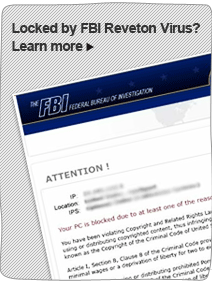Oh, god! It is an evil day. I get the nasty Trojan infection called TrojanDownloader:Win32.Delf.VN which is reported by my security tool. And I thought I must have clicked something wrong when I search some free movie to watch online, and when I watched the movie, I saw something like flash picture blinking and disappearing quickly so that I didn’t realize what it was. I guess this is how I get this horrible virus. I only can use the security tool to kill virus, but this time antivirus cannot do with it. I don’t what to do now. Can you help me to get rid of it?
TrojanDownloader:Win32.Delf.VN Virus Description:
TrojanDownloader:Win32.Delf.VN virus is a newly Trojan infection spread online. It has a strong ability to infect and damage the targeted computer. Trojan horse can create numerous harmful changes and errors on computer system and computer become useless gradually. When it is installed on the targeted computer, it will implant its aggressive executable files or plugins into system and meanwhile can copy itself and insert to system loopholes. To ensure it can stand firmly on infected computer and deeply root in the operating system, it corrupts and disables key system file, process, registry and start-up item even replace or delete directly these crucial stuff things. So you will get a lot of many infected .exe files like dllhose.exe running and taking up massive CPU and you even cannot close or remove them. Due to the dllhose.exe, your computer will slow down soon. What’s worse, it can make full use of system loopholes to allow other infections to access the targeted computer or let cyber criminals to take control the infected computer. More viruses will severely disorder operating system and make computer run improperly even disable the machine. TrojanDownloader:Win32.Delf.VN virus may also disable the mouse and keyboard to completely block you access your computer. To avoid more damages and safeguard your computer, you need to completely remove this Trojan infection at once.
Read the rest of this post »
Published by Tony Shepherd on October 8, 2014 8:31 am and last modified on May 27, 2015 5:33 am.
Hey, is there anybody can help me here, I’m in a trouble now! Here is the thing, there’s a problem with my computer, my antivirus program just told me that my Internet Explorer were hajackered by Mysearch, I try google chrom, it was also infected as well, and the antivirus program cannot do nothing about it! I don’t remember how I got this hijacker, I think that’s because I click some malicious link unconsciously while I browsing some news. What’s worse, I don’t know why, after this redirect intruded my computer, the system running speed became slow, I believe this is a big problem, please help!
Brief Introduction to Mysearch Hijacker
Mysearch, well, when I first saw this name, I guess it’s probably a fake search engine which means that’s a hijacker. It can infect all the installed web browsers like Internet Explorer, Firefox and Google chrome once it hits the target, totally mess up, none of the single one can work normally! Read the rest of this post »
Published by Tony Shepherd on October 8, 2014 5:22 am and last modified on October 8, 2014 5:26 am.
Trojan.Win32.Ramnit.C virus attacked my computer while I was visiting a pop-up message on the Internet browser. Immediately, I ran security scans through the whole system and deleted all reported threats. But I still got this Trojan horse alert after I rebooted the computer. What should I do to save the computer since my antivirus fails to catch the Trojan virus? How to manually delete the Trojan horse? Manual removal tips here will help you deal with the Trojan infection effectively.
Information about Trojan.Win32.Ramnit.C Virus:
Trojan.Win32.Ramnit.C is a horrible Trojan horse that can be circulated for a long time. It is a changeable computer infection which aims at targeting worldwide computers. The Trojan virus is designed by cyber criminals to damage target computers and compromise victims’ security on purpose. The nasty Trojan virus mainly comes from doubtful sites, junk email attachments, random popups and free downloads. It affects computers running with Windows 7, Vista, XP and even the latest Windows 8.1 and so on. Once the Trojan attacks the computer, it will activate and run as a background program. By this way, it takes up the CPU usage and other computer resources. Indeed, the Trojan reduces the system performance and causes system stuck and constant freezes during your activities on the victimized computer. It is a definitely unwanted program that does great harm to affected computers. Actually, it is capable to modify your computer files and drops malicious items to your system. Consequently, users may get some file missing alerts or application errors unexpectedly. Further damages like system crash and blue screen errors and so on can be associated with such a horrible Trojan attack. In this case, the Trojan infection should be removed from the computer manually and quickly.
Read the rest of this post »
Published by Tony Shepherd on October 7, 2014 11:12 pm
I have been gotten many pop-up ads from this SuperMegaBest. I don’t know how to get rid of it. Now my computer perform weird and slowly due to this thing. I think something bad is hiding on my computer. But I just can’t find it cause I’m not a computer savvy at all. Now this thing annoys me a lot when I go online. How can I solve this problem? Please advise.
Brief Introduction to This Infection
If you get tons of advertisements from SuperMegaBest on your computer, which means your computer is infected by a kind of computer threat which belongs to browser hijacker. We can define it as a potentially unwanted program that is distributed by cyber hackers who want to utilize this kind of infection to gain illegal benefits from innocent computer users. Technically speaking, it is not a computer virus at all. However, what it can generate on the infected computer can be the same like virus does. It is classified as a browser hijacker, and this kind of infection is out of the range that an anti-virus program can detect. By taking the advantage of not being caught by security tool, this kind of infection can get greater opportunities to sneak into target computers than viruses. Read the rest of this post »
Published by Tony Shepherd on October 7, 2014 7:00 pm and last modified on October 7, 2014 7:01 pm.
Well, I am afraid I get a malware. This browser-Detect.com pop-up always automatically opens in a new tab of Internet Explorer while I launch browser. I have tried to uninstall IE and reinstall back to get rid of it. I thought it would work but fail. Now it still pops up aggressively. I know the key files of this infection are still on my computer, but I don’t know how to catch it and remove. I also try to launch Norton scanner, but I can’t find any suspicious. I am very frustrated. What can I do to stop those annoying popup? Please help.
Description of Browser-detect.com Pop-up
Browser-Detect.com pop-up is classified as a browser hijacker, which is mainly caused by malicious ad-supported extension or adware or PUPs that are bundled with free software or application downloaded from the Internet. Most PC users usually download and install some free programs or applications into computer, but some free software may be packaged with infectious add-on, extension or adware. If that malicious stuff is dropped on the targeted computer, it will launch annoying tasks. Therefore, when the extensions or files of browser-Detect.com are installed on targeted computer, many pop-ups will show aggressively. This browser hijacker is a platform to throw advertising and promote unknown and malicious adware, malware or other infections. To achieve this goal, this hijacker will register itself as a plugin or add its extension to web browsers like Internet Explorer, Google Chrome, Mozilla Firefox or Safari. And browser-Detect.com change the homepage and replaces default search engine with itself. Thus it can totally control your browser and block you access anything you expected. When you search anything on browser, you only get unrelated result; when you enter any websites’ URLs you expected, you’re instead redirected to another strange and suspicious website. Usually you will see fake update notification popping up from this hijacker’s webpage, which states you need to update some kind of program like video player, adobe flash to the latest version available to continue next operation on your browser. Clicking to update will install malwares into your computer.
Read the rest of this post »
Published by Tony Shepherd on October 7, 2014 8:41 am
What a black letter day! I just had a big argument with my girlfriend which made me really upset already, however, when I turned on my laptop try play World of Warcraft to indulge my sense to forget the fight earlier, the antivirus program told me that my system was infected by this Trojan horse named TrojanDownloader:Win32/Kuluoz.D, I couldn’t start my game exe. The funny thing is, my antispyware can’t help me delete this virus, this is nonsense, I payed for the money! One thing lead to another, I almost want to smash the screen of my laptop, because I tried every mean to make me PC back on normal, but I failed, that’s one tricky Trojan, now I guess I have to ask for help from internet, if there someone who know about this, please help !
Brief Introduction to TrojanDownloader:Win32/Kuluoz.D
TrojanDownloader:Win32/Kuluoz.D is a newly Trojan virus spread on the internet, like many other Trojans, its main objectives is to assault Windows operating systems, such as Window 7, Window 8, Window vista, XP etc. However, this virus is a little bit different from many kind of Trojan horse, no reproduce itself in infected system or intent to get many files infected, so that make more like a impossible job for a average user to remove it manually, as this is virus just recently spread on the internet, it will takess time for antispyware to make solutions for it, so it is not easy for the antivirus program to remove it completely, the protection tool may only tell you that’s a Trojan which need to be removed by your own! Read the rest of this post »
Published by Tony Shepherd on October 6, 2014 11:02 pm
When I launched the Firefox this morning, I got this Themedia-player.com ads displayed on the Internet browser automatically. Many annoying pop-up ads or messages appeared on my computer screen at the same time. I owned two anti-virus programs, but neither of them seems to pick up the browser adware. How to get this pesky adware infection off the computer? If you have no clue, please follow manual removal guide below to deal with the browser adware safely.
Brief Introduction about This Themedia-player.com ads
Themedia-player.com ads is a hazardous adware infection that PC users should be aware of its great risk. It is a definitely unwanted program installed in a target computer automatically. Upon arrival, the adware infection takes control of the affected computer to perform malicious actions there. As designed, the adware has the ability to exploit your system leaks to deliver potential threats including rootkits, worms and malware etc. Many PC victims complain that there are some unwanted extensions, plug-ins and add-ons installed in the affected computers without any knowledge. Indeed, the malicious adware infection may help those unknown freeware add to your computer secretly. It is capable to degrade your system performance and affect functions of normal programs. For instance, the adware infection causes the victimized computer to get constant system stuck and even freezes during processes of launching system, running large programs and loading web pages and so on. You may get some weird application errors and script errors when surfing the Internet or launching programs. To make it worse, the browser adware is hardly deleted via the antivirus which can be disabled terribly. In this situation, PC users had better clean out the adware infection manually at an early time.
Read the rest of this post »
Published by Tony Shepherd on October 6, 2014 12:50 pm
I have installed Pro PC Cleaner somehow. It scanned my computer and detected a large number of errors. That makes me worried. However, this program is only a trial version which can only do the scan but not able to solve the problem. It asks me to purchase a code so that I can activate the program to full version. I was about to get my wallet to pay but after I did some research online, I found it is a bad stuff that has been reported by many people. So, How can I get rid of it from my computer?
Brief Introduction to This Program
Pro PC Cleaner, from the name of it, people can easily treat it as a tool for computer performance and security. From the interface of this program, computer users can also relate it as a useful tool for them to check their computers as it looks professional with some specific functions. People can take the so-called registry scan by it to check the condition of their computers. All the things make it like a legitimate and trustworthy program for people to download and utilize. But the real character of it can be totally opposite. It has nothing to do with the system security, on the contrary, it is a kind of computer threat that we can call it rogue antispyware. What it can generate on the computer is not to protect the system but damage it. Read the rest of this post »
Published by Tony Shepherd on October 6, 2014 4:28 am
What can I do now? I think I am now experiencing a browser hijacker on the Mozilla Firefox. There are tons of ads flying from this search.yac.mx web page. Wow, the desktop is messed up and I can see several strange shortcuts on the desktop. Now internet speed becomes slow and many webpages will be loading for a long time but at last some cannot be opened at all. It is very annoying. I need it completely getting out of my computer, please help!
Description of Search.yac.mx Hijacker
Search.yac.mx is a dangerous browser hijacker attacking web browser with malicious codes. It can change your homepage and default search engine, block you access to any expected search results and redirect you to malicious webpage where unwanted and annoying ads pops up unstoppably and sponsored links shows. This hijacker also makes your web browser run sluggishly or changes your DNS setting to block your access Internet. On the other hand, it even can spy on your internet activities and use cookies to collect your online traces and then steal personal sensitive information or data like mail box’s account and password, credit card or online banking details, which will make your personal data in a high risk of being let out or cause your financial loss. Now you should learn that search.yac.mx hijacker is a threat to your personal information security and financial security. Therefore, you should remove this hijacker as soon as possible.
Read the rest of this post »
Published by Tony Shepherd on October 6, 2014 1:28 am
My goodness, I think I was fooled by a fake antivirus program called “Personal Shield Pro”. I just read some news from internet this morning, during the middle of time, a popup window showed up on the screen which told me that it found my computer was in a dangerous condition and it would love me to help me do a free scan if I want! Well, I didn’t know for sure if my computer really has some problem at the moment, but it’s a free scan, why not? But when I download the program, it did bring me many “problem”, because it’s a problem. When it attempted to talk over me to buy the full version to remove all the virus, I realize that’s trick. However, it won’t let me remove it, this fake program is very tricky, so I turn for help from internet, please help!
Brief Introduction to Personal Shield Pro
Personal Shield Pro is a rogue anti-spyware programs spread on the internet, it’s a bogus Windows utility software that promises to fix system errors. It just tricks innocent people into buying the service by showing fake scan results on victim’s computer. Actually, it dose successfully deceive money from many computer users, there are few have already be taken in this one. So I need to remind people who might about to see this one in the future, Personal Shield Pro is just another variant of the so many rogue programs that comes from a large group of malicious applications. Read the rest of this post »
Published by Tony Shepherd on October 5, 2014 12:54 pm










